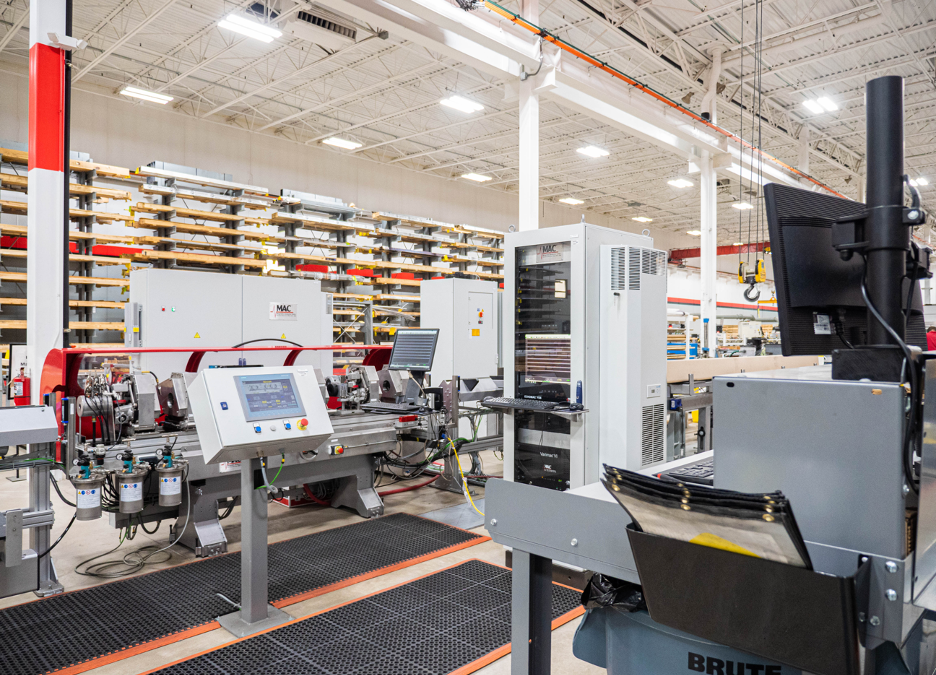Chemical milling is a specialized manufacturing process that involves the selective removal of material from metal parts using chemical etching. This process is widely used in various industries, including aerospace, automotive, electronics, medical devices, and more.
Are you interested in learning more about it? This chemical milling company in Oklahoma City, Oklahoma is going to explore some of the key things you should know below — including its advantages, disadvantages, process, applications, and more.
The Advantages of Chemical Milling
Chemical milling offers several advantages that make it a preferred method for many manufacturers. One of the key benefits is its ability to produce intricate and complex shapes with high precision. The chemical etching process allows for the removal of material from specific areas, enabling the creation of intricate patterns and designs that would be difficult to achieve using traditional machining methods.
Another advantage of chemical milling is its cost-effectiveness. Unlike traditional machining techniques that require extensive tooling and setup costs, chemical milling eliminates the need for expensive equipment and tooling. This results in significant cost savings, especially for small production runs or prototyping.
Additionally, a professional chemical milling company in Oklahoma City, Oklahoma can provide excellent surface finishes. The etching process can be controlled to achieve smooth and uniform surfaces, free from the burrs and imperfections that are sometimes associated with traditional machining methods. This is particularly important in industries such as aerospace and medical devices where smooth surfaces are crucial for optimal performance.
The Disadvantages of Chemical Milling
While working with a chemical milling company in Oklahoma City, Oklahoma offers numerous advantages, there are also some potential disadvantages to keep in mind, depending on your situation. One potential drawback is the limited material compatibility. Chemical milling is suitable for most metals, especially those that are easily etched, such as aluminum, titanium, and stainless steel. However, it is not suitable for non-metallic materials like plastics or ceramics.
Additionally, the chemical milling process may have limitations when it comes to certain design features. Very thin or delicate parts may not withstand the etching process, and the depth of etching may also be limited. It is essential for manufacturers to carefully evaluate their design requirements and consult with experienced chemical milling companies to ensure feasibility.
The Process of Chemical Milling
The process of chemical milling involves several steps that are carefully executed to achieve the desired results. First, a maskant or protective coating is applied to the metal surface, leaving only the areas to be etched exposed. This maskant can be in the form of a liquid resist, tape, or film. The masked part is then immersed in an etchant solution, which selectively removes the exposed material.
The etchant solution used depends on the type of metal being etched. Different metals require different chemical compositions and concentrations to achieve the desired etching rate. The etching process should be closely monitored by a chemical milling company in Oklahoma City, Oklahoma to ensure precise control over the depth and uniformity of material removal.
Once the desired etching is complete, the part is thoroughly rinsed to remove any remaining etchant and maskant. Additional post-processing steps, such as passivation or surface treatments, may be performed to enhance the part’s corrosion resistance or appearance. The result is a precisely machined part with intricate features and excellent surface finish.
Applications of Chemical Milling
Chemical milling finds applications in various industries where precision machining is required. In the aerospace industry, chemical milling is used to manufacture aircraft components such as wing skins, engine mounts, and fuselage frames. The ability to produce complex shapes and lightweight structures makes chemical milling an ideal choice for aerospace applications.
The automotive industry also benefits from chemical milling, particularly in the production of engine components, transmission parts, and decorative trim pieces. The precise machining capabilities of chemical milling ensure tight tolerances and high-quality finishes, meeting the stringent requirements of the automotive sector.
Furthermore, electronic devices rely on chemical milling to produce printed circuit boards (PCBs) and semiconductor components. The intricate patterns and precise etching achieved through chemical milling enable the miniaturization of electronic devices and enhance their performance.
Looking for a Chemical Milling Company in Oklahoma City, Oklahoma?
Are you ready to partner with a chemical milling company in Oklahoma City, Oklahoma that supply you with the unique metal components needed for your manufacturing endeavors? If so, Supra Alloys is the company to call. With years of experience, state-of-the-art equipment, and a commitment to quality, we are the trusted choice for precision machining.
Contact us today at 1-888-647-8772 to schedule a free consultation.


